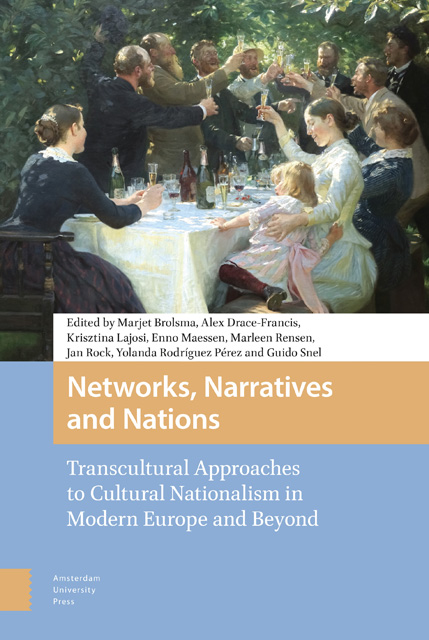 Networks, Narratives and Nations
Networks, Narratives and Nations Book contents
15 - Travelling Westwards: Finding Europe in the Irish Middle Ages
Published online by Cambridge University Press: 16 November 2022
Summary
Abstract
Medieval Irish bardic verse is a frustratingly esoteric and inward-looking genre, deeply self-referential in its own hidebound traditions exclusive to native Irish poetics and politics. This chapter attempts to pry open one example of the genre to reveal a European core, and a mediation of Irish and European understandings of “gaisgeadh/prowess.”
Keywords: Irish bardic poetry; Dublin University; Connacht kings and lords; translatio studii
It is often claimed that Ireland lies quite outside the historical experience of the European Middle Ages. In this view, her marginal status has been evident since the Roman period or even before, an outlier even in the Celtic world of prehistory. More recent historiographical trends have re-established somewhat a Roman profile for Ireland in terms of trade contact and a related Roman literacy that predates the arrival of Christianity in the fifth century. The links with the Latin West of the early Middle Ages through the mediation of Christian literacy and its effect on law, social custom and literature is now a scholarly orthodoxy and few would have the temerity to question it. The later medieval period and the “two nations” split after the English invasion of Ireland in the late twelfth century seems to find a Gaelic Ireland at a political disadvantage: pushed to the margins as it was, with little understanding or sympathy for its divergent social and cultural underpinnings, it is harder to discern how its native structures link to a wider European world – outside of the very obvious universalizing relations maintained by the network of the Church.
I wish to examine the faint outlines of one such link here. My focus is on a fragment of a bardic praise poem which Lambert McKenna published in his anthology Aithdioghluim Dána from the duanaire or poem-book embedded in the manuscript called the Yellow Book of Lecan.4 McKenna cautiously suggested an identification for the named subject of the eulogy as Toirrdhealbhach Ó Conchobhair, one of the most powerful kings of his dynasty to rule Connacht and to be accorded the title of High King of Ireland in the Irish Middle Ages.
- Type
- Chapter
- Information
- Networks, Narratives and NationsTranscultural Approaches to Cultural Nationalism in Modern Europe and Beyond, pp. 189 - 202Publisher: Amsterdam University PressPrint publication year: 2022


